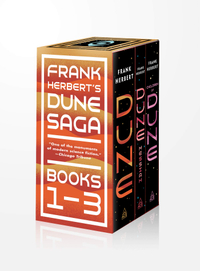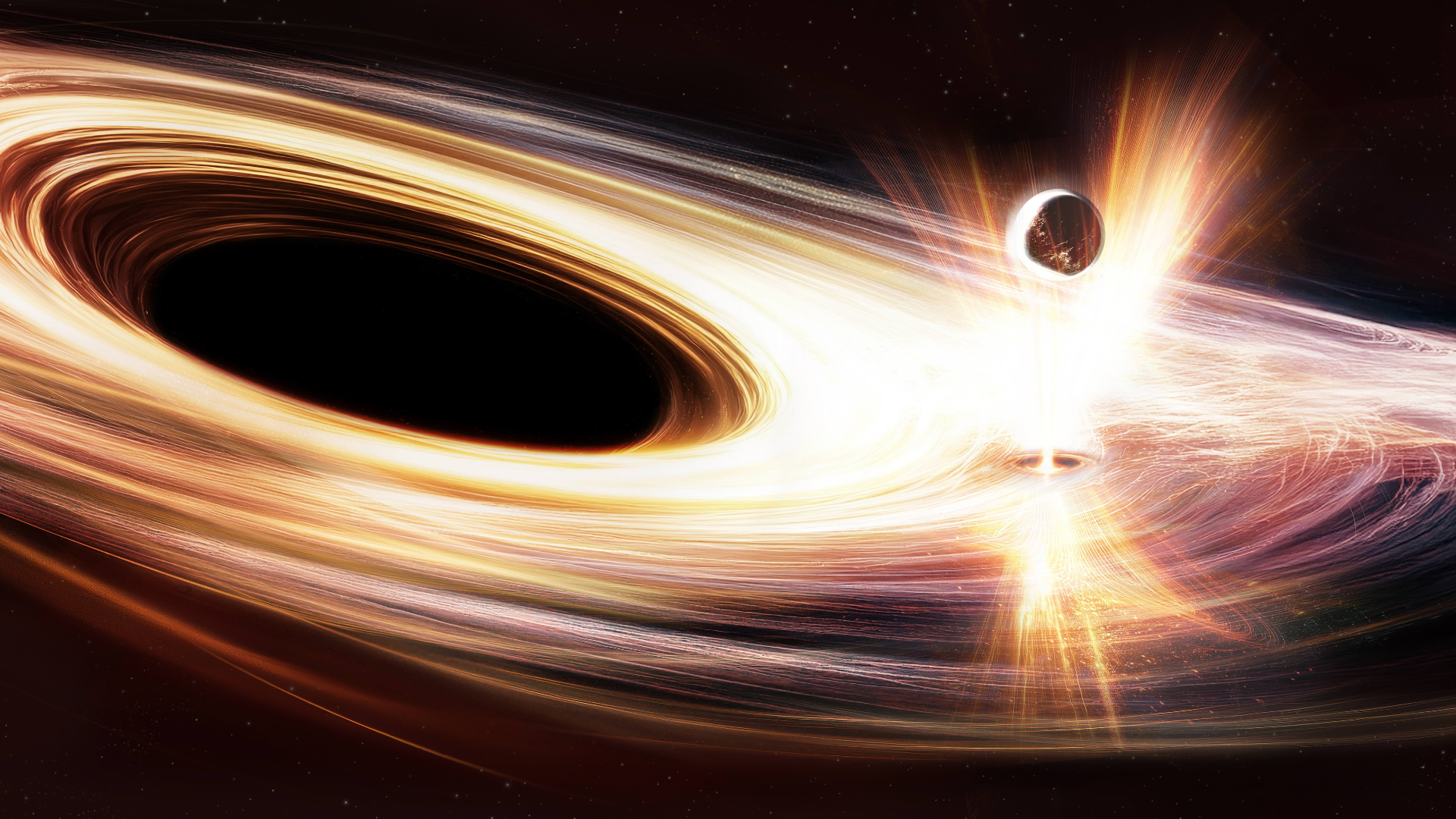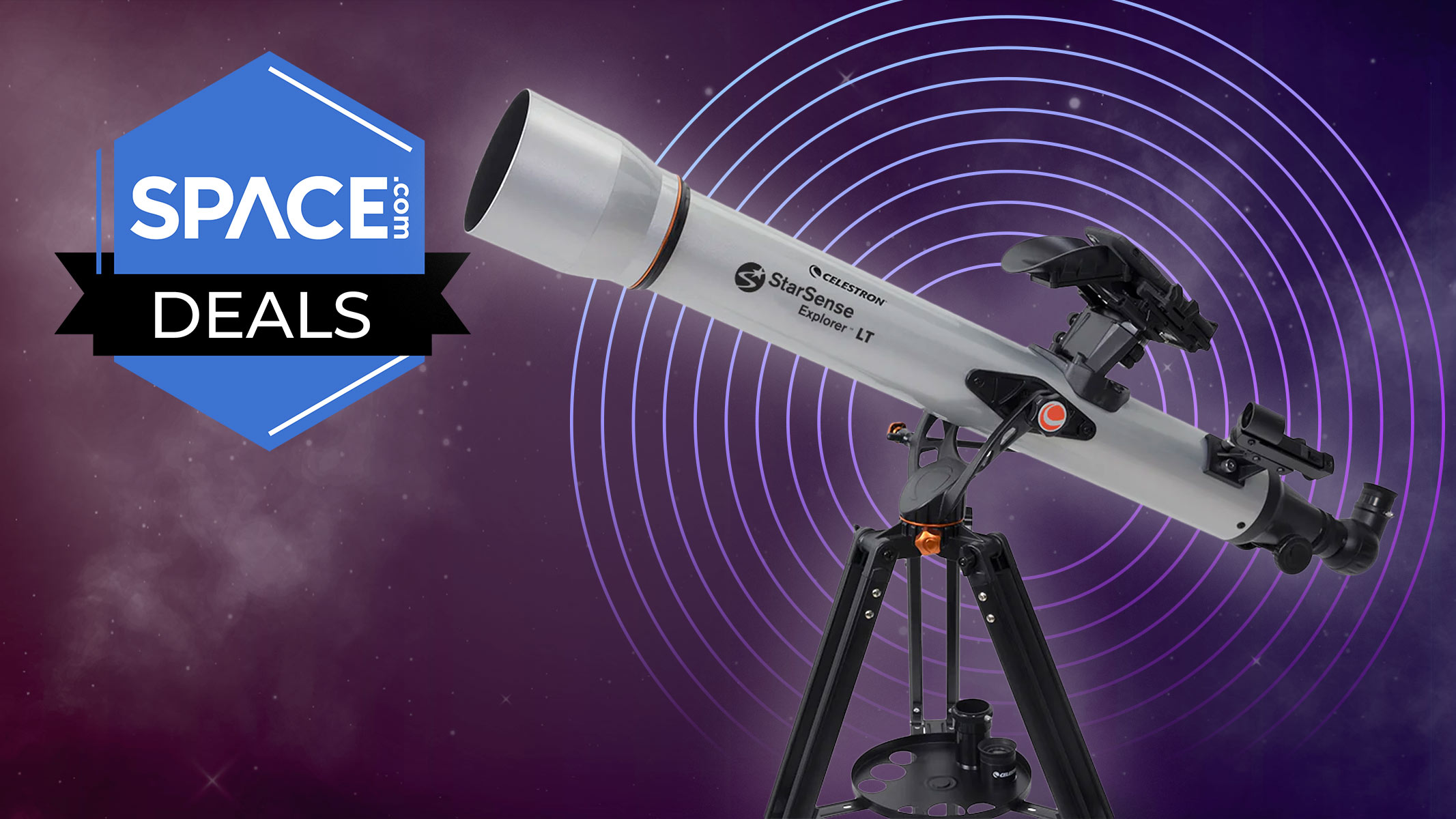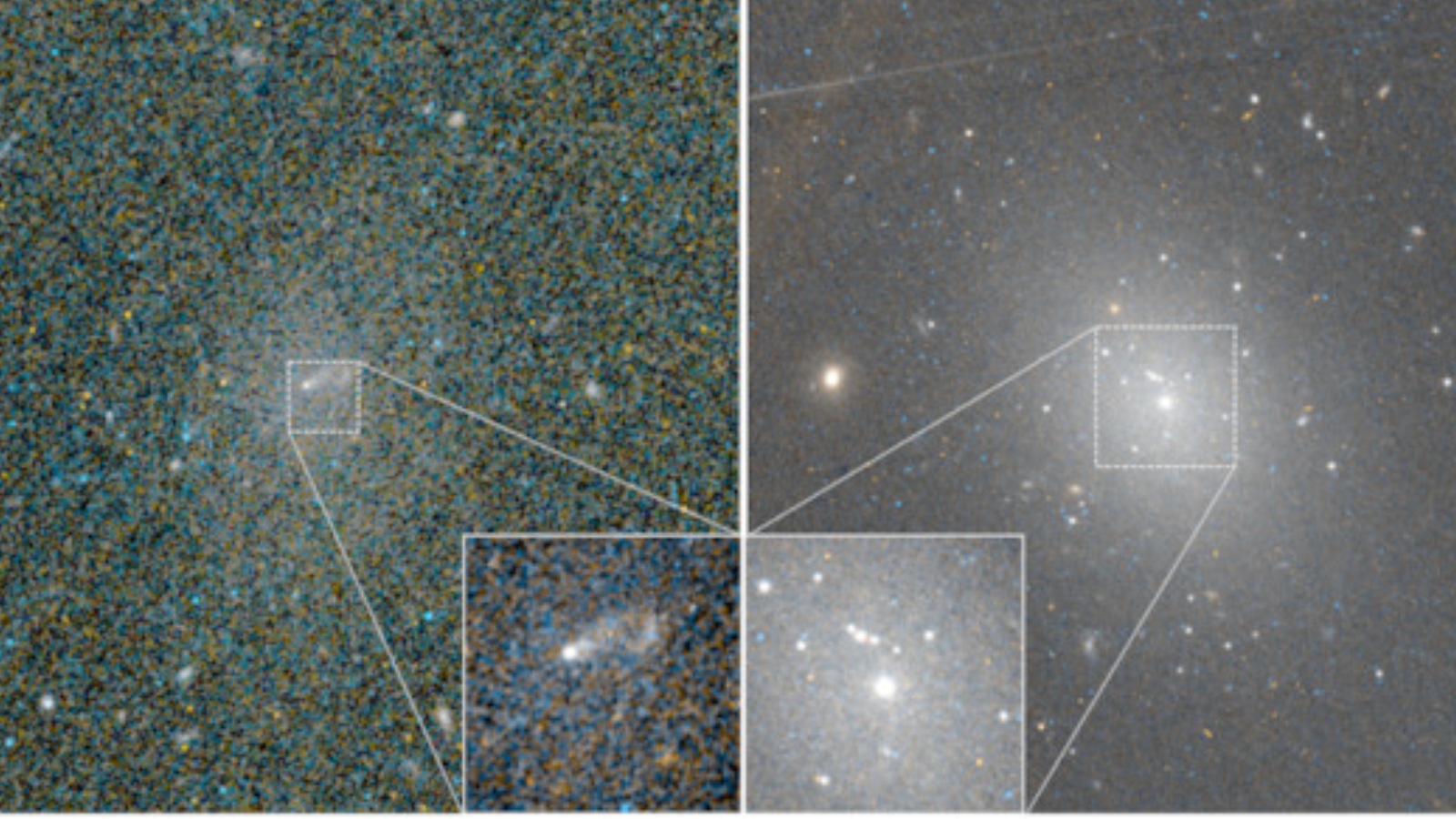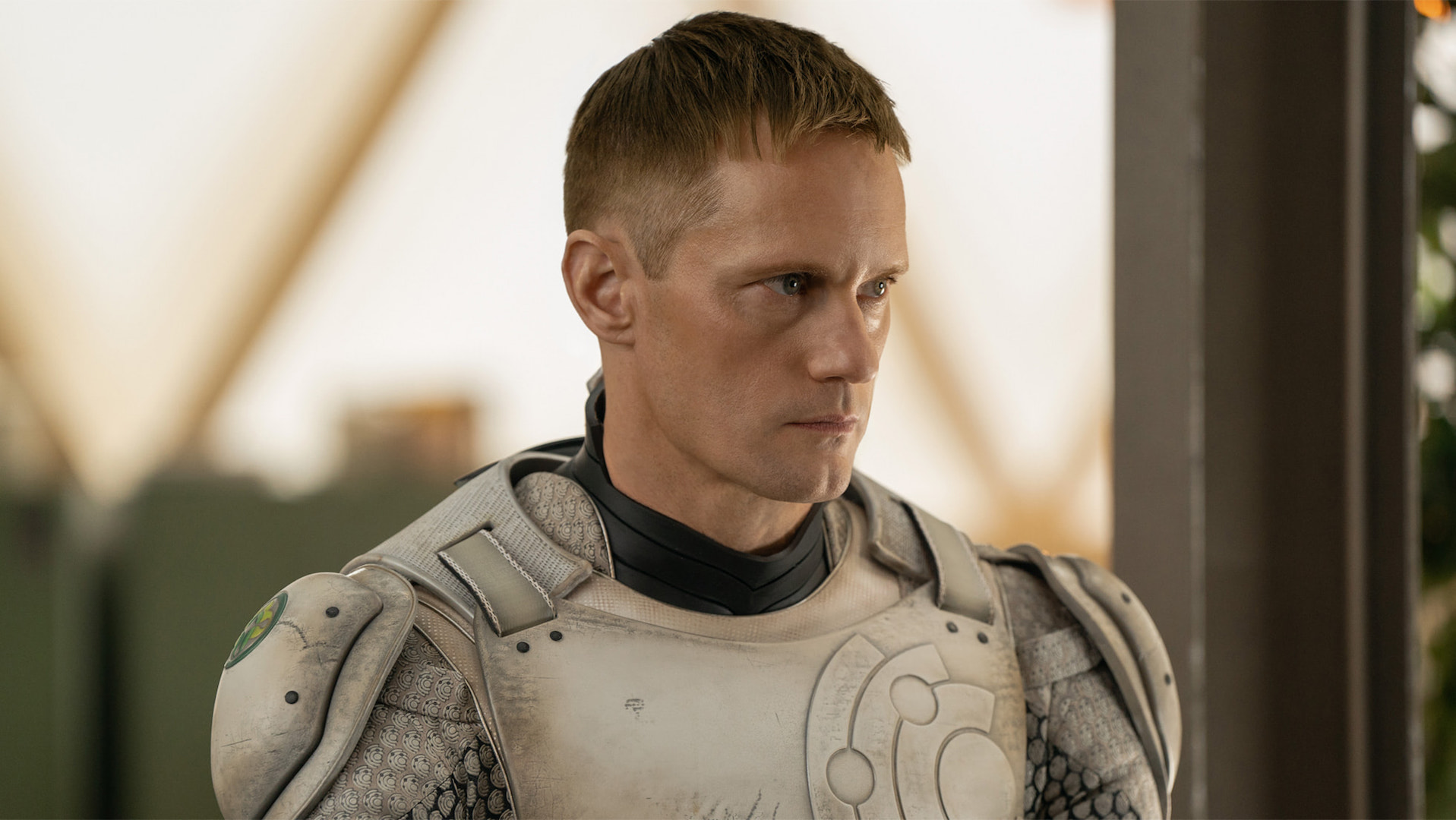'Dune' review: Denis Villeneuve brings a sci-fi classic back to the big screen
If this was a school report, it would say something like, "We know Denis can do better"
Spoilers…but then if you don't know the story of "Dune" already, go to your local library and read it, immediately.
For nearly five years, when Legendary Entertainment acquired the rights for "Dune" in November 2016 and Denis Villeneuve was eyed for the project, we've waited patiently to see the fruits of his labor. What could the visionary director who gave us the edge-of-seat "Sicario," the enthralling "Arrival" and the masterpiece that is "Blade Runner 2049" create from Frank Herbert's source novel? And now we know.
First published in 1965 as two separate serials in Analog magazine, it won the Hugo Award and Nebula Award for Best Novel in 1966. It's the first installment — of which there are many — of the "Dune Saga" and has sold over 12 million copies worldwide. It's regarded as arguably the greatest work of science fiction ever written and one of the most important contributions to 20th century literature. "Dune" was also a massive influence to George Lucas when he was writing "Star Wars" (Tatooine and Arrakis, spice freighters, Spice Mines of Kessel etc).
"Dune" is set over 8,000 years in the future amidst a feudal interstellar society in which various noble houses control celestial estates and tells the story of young Paul Atreides, son of Duke Leto, ruler of House Atreides. For reasons deep-rooted in politics and paranoia, House Atreides have been ordered by the Emperor of the Known Universe to take stewardship of the planet Arrakis, replacing their sworn enemies House Harkonnen.
Note: If you're wondering how to see the new movie outside the theaters, check out our "Dune" streaming guide for tips on where to watch.
Frank Herbert's Dune Saga 3-Book Boxed Set: was $30.97 now $20.98 at Amazon
Launch yourself into Frank Herbet's epic saga on the desert planet of Arrakis, where the Spice must flow. This box set, which is 32% off, includes Herbert's iconic Dune novel, as well as Dune Messiah and Children of Dune.
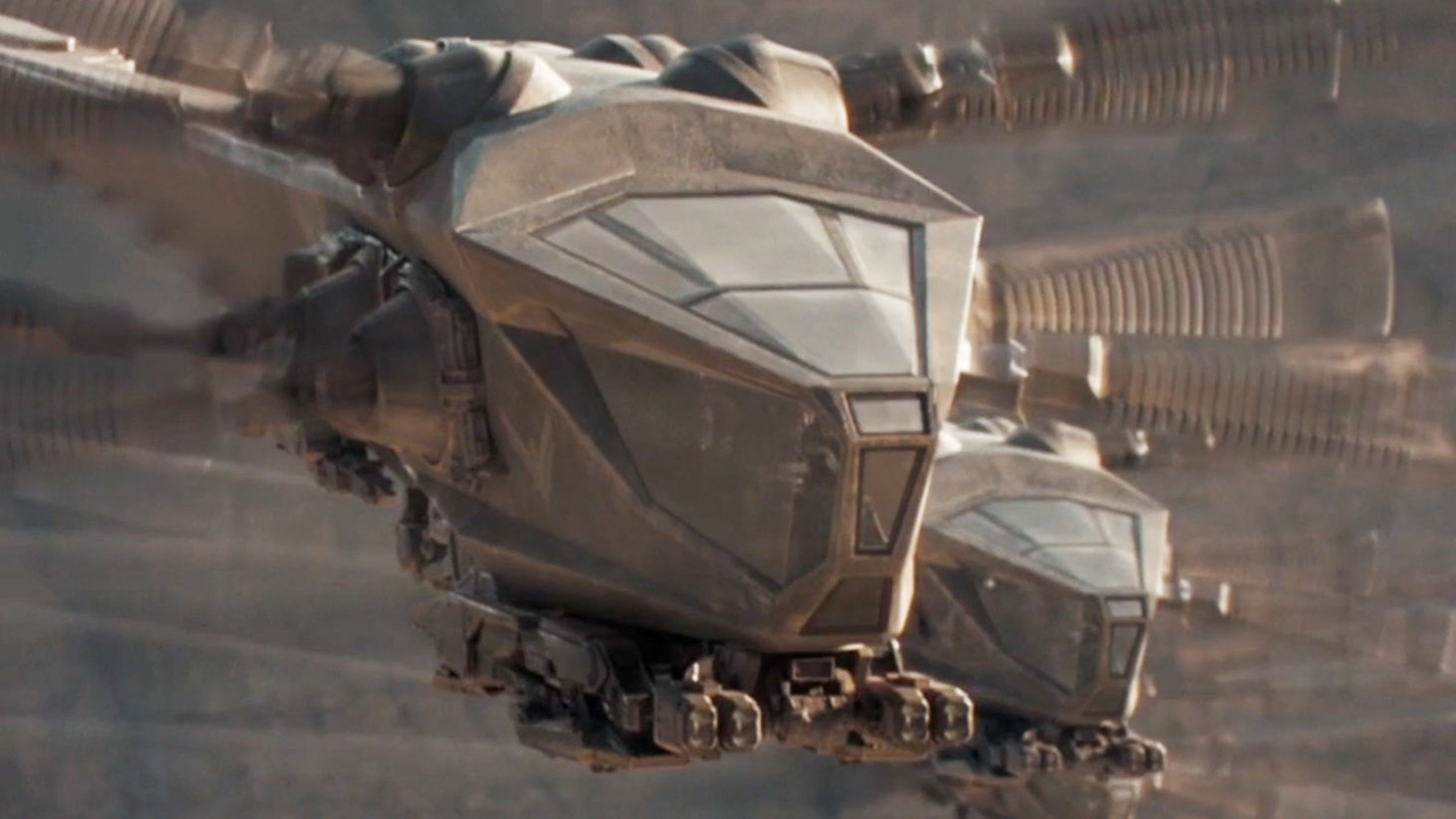
Arrakis is an inhospitable and sparsely populated desert wasteland. However, it is the only source of a spice called Melange, which along with offering many health benefits and enhancing cognitive abilities, it is essential for folding space, the only method that exists of crossing vast interstellar distances. Consequently, this seemingly worthless world is actually the most important planet in the universe.
What follows is a multilayered story with interacting elements of politics, religion, ecology, technology and human emotion, as an intergalactic game of chess unfolds in a struggle for survival, the control of Arrakis and the spice.
Get the Space.com Newsletter
Breaking space news, the latest updates on rocket launches, skywatching events and more!
Much like "Foundation" currently airing on Apple TV+, "Dune" was considered by many to be unfilmable, or at the very least, extremely difficult. In December 1974, a French consortium purchased the movie rights with the intention of having Alejandro Jodorowsky in the director's chair. Pink Floyd and French progressive rock band Magma were set to provide the music; artists HR Giger, Chris Foss and Jean Giraud had been approached to provide set and character design and an impressive cast was to include Salvador Dalí, Orson Welles, Gloria Swanson, David Carradine and Mick Jagger. However, despite some concerns over Jodorowsky's ambitious ideas, after two and a half years in development, the project ultimately stalled for financial reasons. There is an incredible documentary called " Jodorowsky's Dune" available to watch on Amazon Prime that tells the whole story.
Ridley Scott considered having a go in the very early 80s and even got as far as preliminary artwork by HR Giger. However, "Blade Runner" wasn't the box office blockbuster the studio's hoped for in 1982, so that was the end of that.
Then came David Lynch's "Dune" in 1984, the movie that everyone is comparing this new one too. And that's understandable, because it's the only other cinematic production of Frank Herbert's novel. However, it is essential to remember that these two interpretations of "Dune" are exactly that, interpretations, made by two different directors with different visions, some 37 years apart. This absolutely should be looked upon like comparing two different productions of Shakespeare's "Henry V" and "Dune" is exactly that, science fiction Shakespeare.
Lynch's "Dune" took nearly three years to produce and also boasted an impressive cast, including Sean Young, Patrick Stewart, Max von Sydow, José Ferrer, Jürgen Prochnow, Dean Stockwell, Francesca Annis and Kyle MacLachlan. This new movie also features an impressive cast, including Stellan Skarsgård, Javier Bardem, Josh Brolin, Jason Momoa, Timothée Chalamet and Rebecca Ferguson.
Related: 'Dune' reaches space as astronaut celebrates Frank Herbert's iconic sci-fi novel
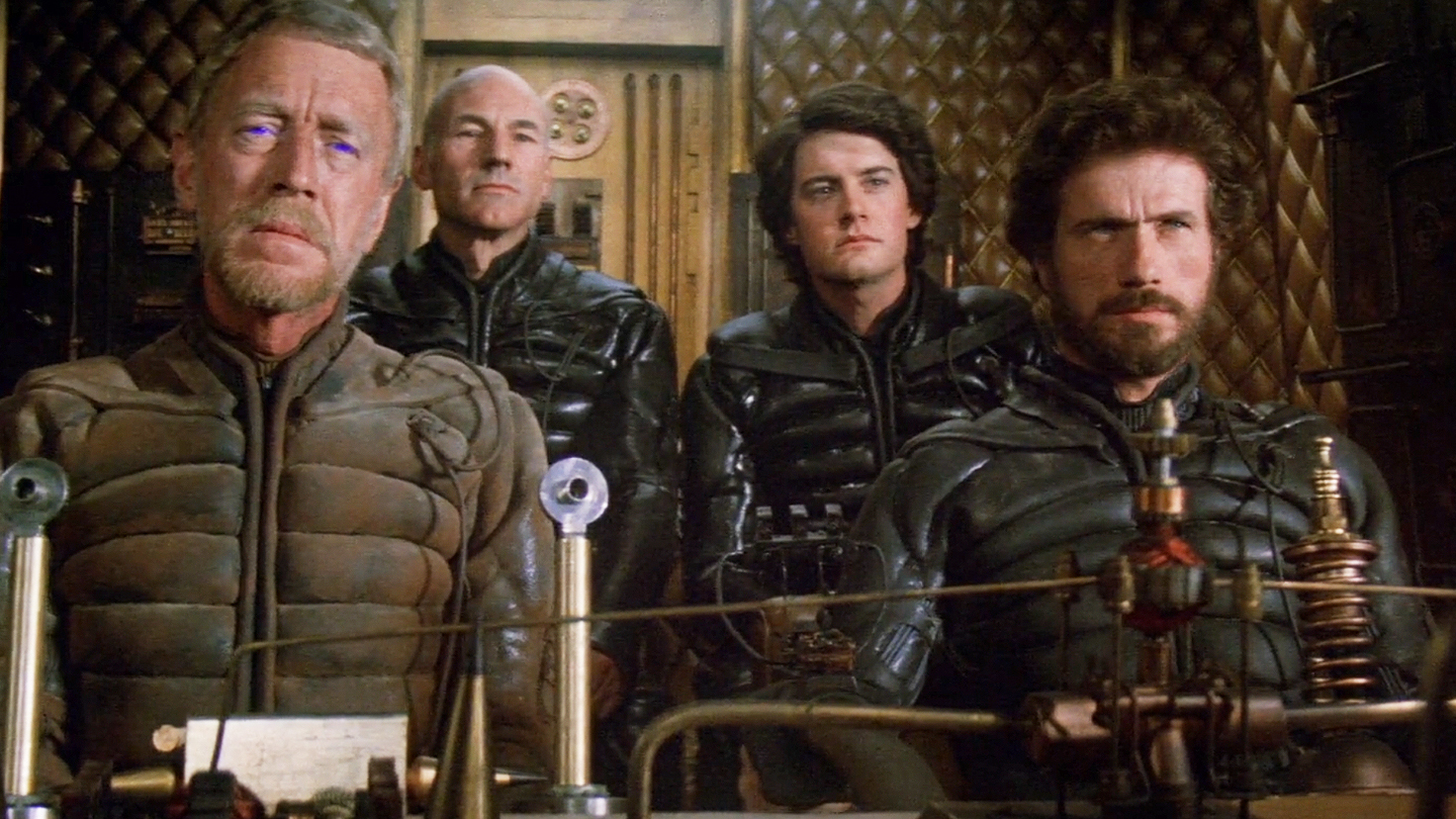
The 1984 movie adopted a different approach; Lynch took some liberties with the story (it doesn't rain on Arrakis at the end of the novel), added the nice-but-not-necessary Weirding Modules and redesigned the whole look and feel of the technology used. Just like how Ridley Scott popularized cyberpunk in "Blade Runner," Lynch did the same for steampunk — a style that suggests advanced technology actually has older, typically Victorian-era components. This is particularly visible for example, when we see the perspective shot of Paul Atreides (Kyle MacLachlan) from inside the hunter-seeker during an assassination attempt inside his bedchamber.
Villeneuve on the other hand, has opted for a more retrotech aesthetic — similar to the "Star Wars" universe, for example — and it looks beautiful, especially on a big screen, but neither is right or wrong and we love both. Thirty-seven years is a very long time in movie production and both special and visual effects have evolved a great deal, consequently much more is possible today than it was in the early 80s. This is probably most evident with the giant sand worms of Arrakis.
In addition to the separate approaches to visual style, there are many other differences between the two interpretations. "Dune" really does have the grandeur of a work of Shakespeare and Lynch's movie felt much more theatrical. His movie also utilized voiceover narration and straightaway the absence of this is felt in this 2021 adaptation. Again, this has pros and cons. Once again using the hunter-seeker assassination attempt in Paul's bedchamber as an example; we hear Kyle MacLachlan's inner voice providing exposition about how the suspensor field will make it slippery underneath. It adds to the scene without spoon-feeding the audience any information to assist the flow of the story.
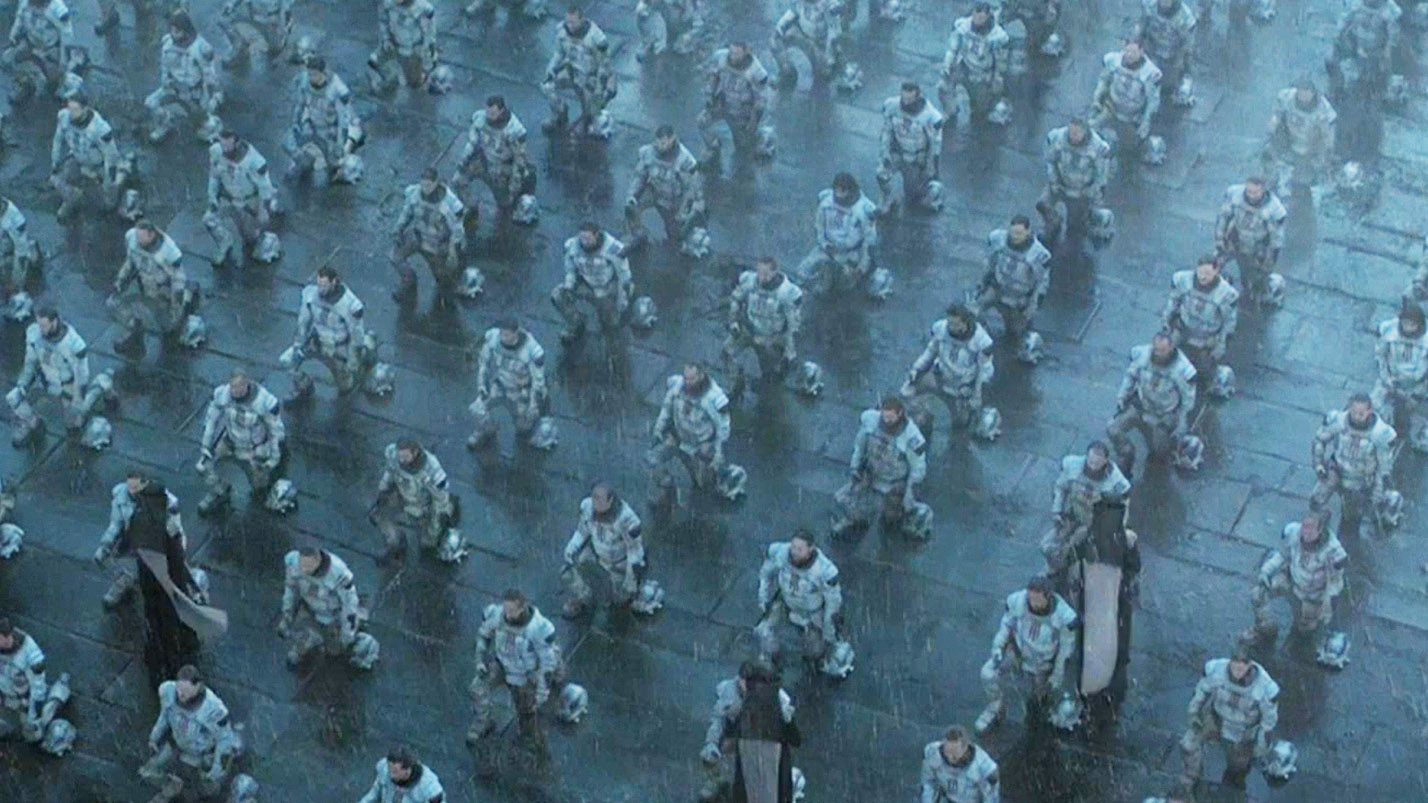
Villeneuve does away with that completely. Instead, he relies much more on the use of dramatic incidental music and instrumental montages to build the tension in the scene. And it's done very well. Both significantly different approaches are equally successful in creating an effective set piece.
The new movie also dramatically reduces the screen time of Dr Yueh (played by Chen Chang and Dean Stockwell in the 1984 movie). Again, there are both pros and cons to this, but mostly cons. In Lynch's movie, the strong relationship and respect Duke Leto and Lady Jessica have with Yueh is steadily built upon, thus making his betrayal — and the breaking of his imperial conditioning — so much more significant. However, it does set him up as the prime suspect to be "the traitor" that Baron Vladimir Harkonnen refers to earlier in the story.
In Villeneuve's version, his character is hardly seen, so while we don't suspect him at all, because he's hardly said two words, the magnitude of his Marcus Brutus-style betrayal is totally missed. Also, Stockwell gives an Academy Award-level performance when he's finally murdered by Piter de Vries (Brad Dourif). Sadly, Chang does not.
On the flipside, Villeneuve's movie considerably increases the screentime and story of Duncan Idaho (Jason Momoa). Poor Richard Jordan was spectacularly underused in Lynch's film.
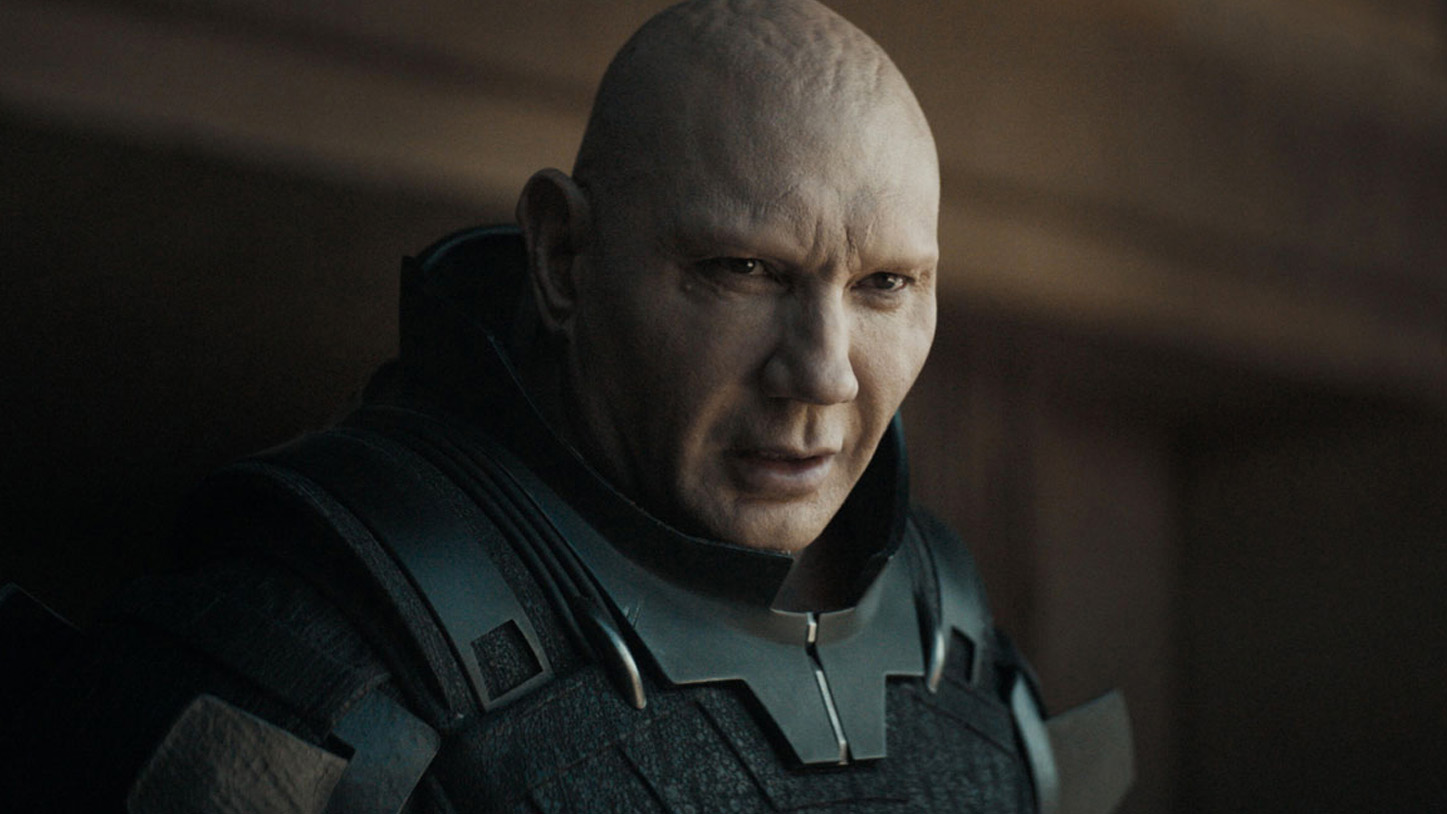
However, both movies didn't show the set-piece death scene of Dr. Liet Kynes, played by Max von Sydow in 1984. The role has been regendered for the 2021 movie and is played by Sharon Duncan-Brewster, but Liet Kynes is the father of Chani, so perhaps this is her mother instead. In the book, Kynes is badly beaten by the Harkonnens during the attack on Arrakeen and is taken to the deep desert, without a stillsuit, to die. He begins to hallucinate and has an imaginary conversation with his father before being swallowed by the desert in a spice blow. It's a beautiful, emotional chapter in the book and Villeneuve pays homage to it by having Kynes swallowed by the desert in the wake of a worm instead, taking a few Sardaukar troops with her.
Talking of the Sardaukar, we get a brief glimpse of Salusa Secundus in this movie, the home of the feared Sardaukar terror troops and that scores massive points. But interestingly, Villeneuve — who has chosen to expand many more elements of the story and thus create this two-part story (the runtime of the 1984 movie was 2 hours 17 minutes and this runs at 2 hours 35 minutes) — has not yet shown the character of Feyd Rautha, famously portrayed by Sting in the Lynch movie. And this is odd as Feyd's story runs parallel to Paul's in the book; he is in essence the anti-Paul.
Villeneuve has still made his own modifications to the story; one of the most notable is the rescue of the harvester crew after — in this version — the carryall malfunctions. In the novel, the Harkonnens had managed to overpower the crew of the carryall and in Lynch's movie, it's assumed they had destroyed it. This is an important set piece in the story as Kynes begins to admire Duke Leto, against all better judgment. It also contributes to the gradual, continuing thread that suggests the Harkonnen threat on Arrakis is still very real. But the malfunction feels forced and there was really no need to make this alteration. Moreover, Oscar Isaac just does not have the forcefulness that Jürgen Prochnow does as he shouts, "You men, run! RUN!"
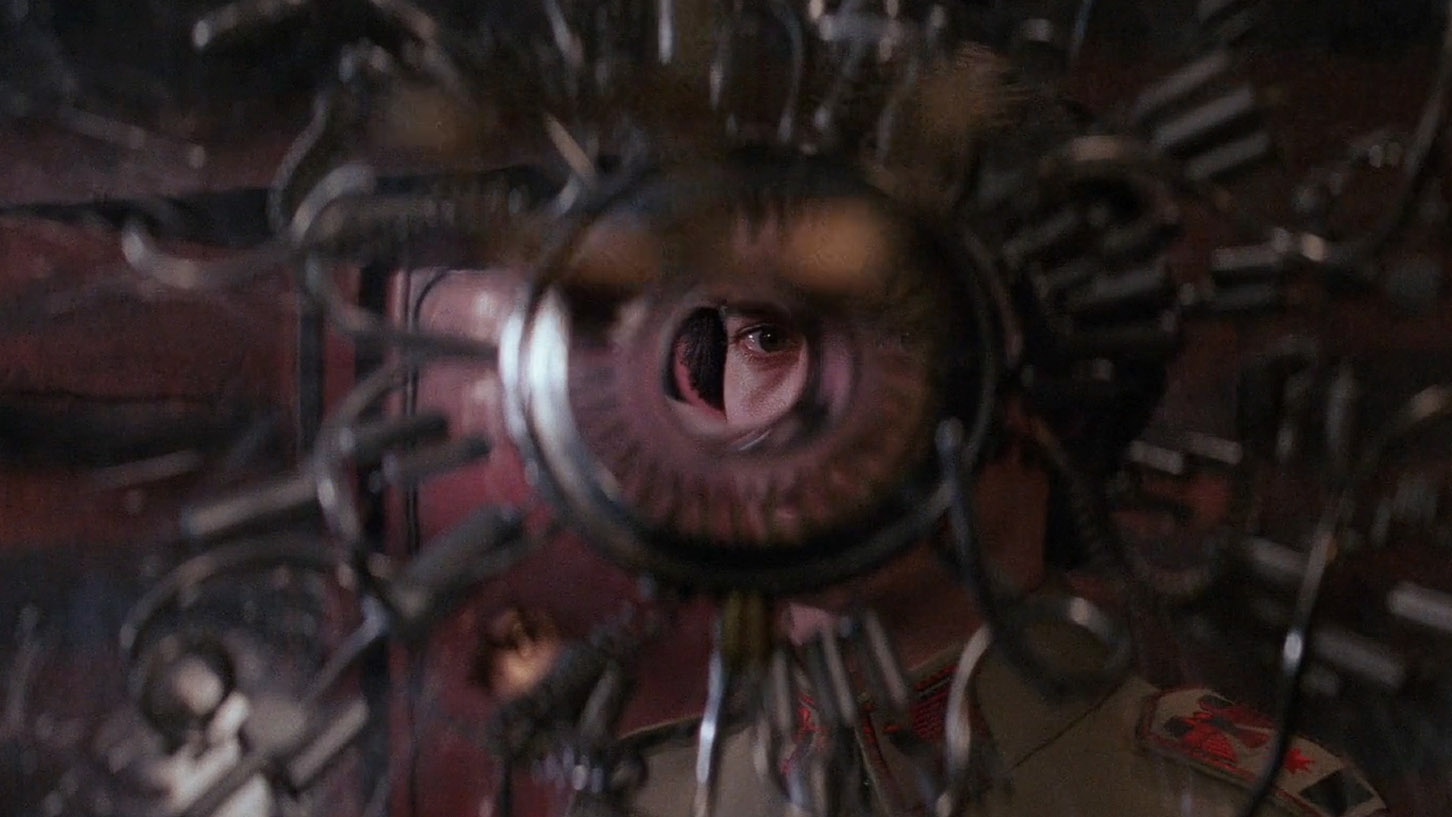
Here's the thing; any movie that is a part of a larger story, should still be able to stand up on its own … and I'm not sure if this does. It has very obviously been written with part two in mind and the choice to end where it did — before Paul embarks on the next chapter of his life and begins fulfilling the prophecy — is an interesting one. Basically there's no third act.
Lynch's "Dune" had so many memorable scenes and lines delivered with seldom-seen panache, that are so quotable, even now. From just about anything Everett McGill (Stilgar) says to Patrick Stewart, leading a counterattack, holding a pug and shouting, "Long live Duke Leto!"
Yet, very little will stand out in this movie in the same way, sadly. The dialogue is written in a much more casual, conversation-like manner and despite a great cast and good performances — the most notable probably Charlotte Rampling (Reverend Mother Mohiam) and Dave Bautista (Beast Rabban Harkonnen) — nothing was particularly stand out.
With one or two small exceptions, this movie follows a similar story to Lynch's, but it really skews away after the Harkonnen attack on Arakeen. It almost feels at times as if decisions were made to make it deliberately stand apart form the 1984 version, to make it possible to love both movies.
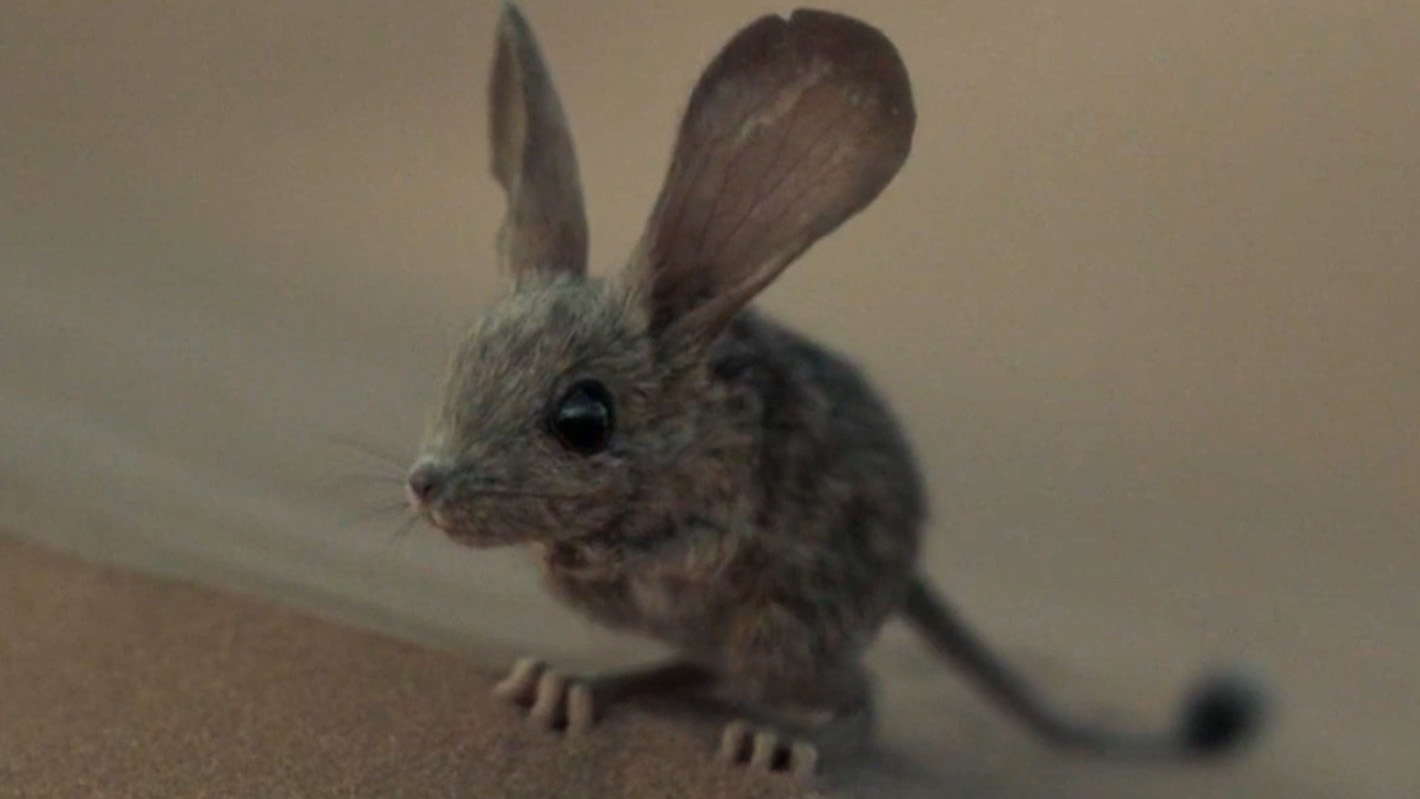
Once you've got past the way "Harkonnen" is pronounced, it's enjoyable. There's a really interesting angle taken at the beginning at the movie, which is very indicative of the times in which we live, as we hear from Chani's (Zendaya) perspective of all the times Arrakis has been occupied and the Fremen have been hunted. Villeneuve has opted for much more Middle East-feel to the set design, rather than the colonial aesthetic Lynch went for. However, both work well and the 2021 movie pays homage to the source novel since there are a great many Persian influences in the book.
"Dune" is a good movie and, like Lynch's, it has its ups and its downs, but is it Villeneuve's film best so far? No. That was "Blade Runner 2049" without a single shadow of doubt. Could this version of "Dune" be better, yes. Could "Blade Runner 2049"? No, that's a perfect film. Denis Villeneuve hasn't put his stamp on this movie as much as fans of his work would've liked to see. If this was a school report, it would say something like, "We know Denis can do better and while his work continues to be among the best in his class, we believe he can accomplish more."
At the time of writing, "Dune" has opened in the US with $40 million USD. That's the best ever for director Denis Villeneuve, which is great news and there's no reason whatsoever that part 2 should not be given the green light. Incidentally, at $165m, "Dune" was $35 million cheaper to make than "Jungle Cruise"… let that sink in.
Follow Scott Snowden on Twitter. Follow us on Twitter @Spacedotcom and on Facebook.
Join our Space Forums to keep talking space on the latest missions, night sky and more! And if you have a news tip, correction or comment, let us know at: community@space.com.
When Scott's application to the NASA astronaut training program was turned down, he was naturally upset...as any 6-year-old boy would be. He chose instead to write as much as he possibly could about science, technology and space exploration. He graduated from The University of Coventry and received his training on Fleet Street in London. He still hopes to be the first journalist in space.
